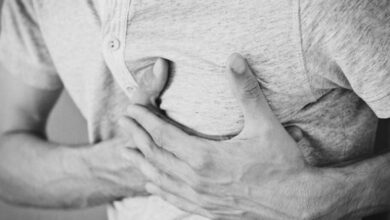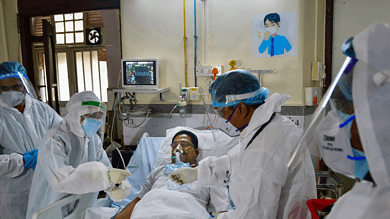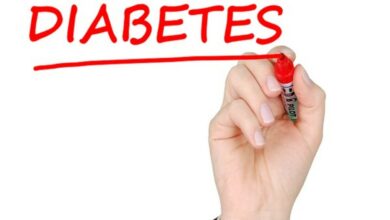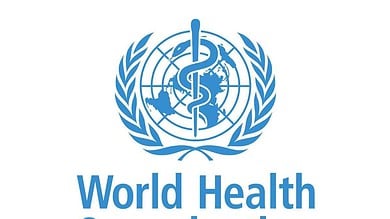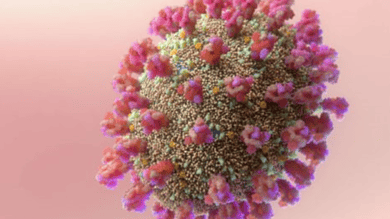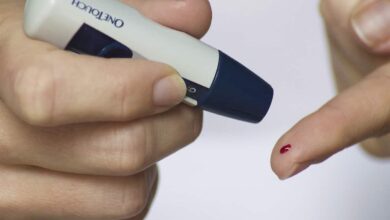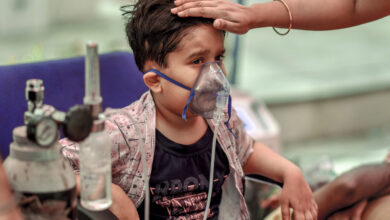Health
-
Scientists call on G7 leaders to ensure equality in pandemic preparedness
New Delhi: Global scientists and public health experts on Friday warned G7 leaders that the world is not prepared for the next pandemic and, without urgent action, will repeat the inequality of…
-
Study finds how diet rich in fat, sugar connected to skin inflammation
California: According to a study by UC Davis Health researchers, inflammatory skin conditions like psoriasis may be brought on by a Western diet high in fat and sugar. According to the study,…
-
Global stroke deaths expected to rise to nearly 5mn by 2030: Study
Beijing: The number of deaths worldwide from ischemic stroke increased from 2 million in 1990 to more than 3 million in 2019, and is expected to increase to nearly 5 million by…
-
Covid positive donor hearts may impact post-transplant survival: Study
New York: Heart transplant recipients receiving organs from active Covid-19 positive donors may have an increased risk of death at six months and one year when compared to those receiving organs from…
-
University of Hyderabad develops potential new treatment for diabetes
Hyderabad: Reagene Innovations Pvt Ltd, a start-up biotech company incubated at the University of Hyderabad’s BioNEST incubation centre has developed a new strategy to reduce blood glucose. They proposed that 70 percent…
-
Hypertension a silent killer, lifestyle modification key to manage: Experts
New Delhi: Hypertension or high blood pressure (BP) is a silent killer as it usually does not cause noticeable symptoms, yet a major reason behind a host of conditions that can also…
-
Gender inequality may shrink women’s brain: Study
London: Gender inequality is associated with differences in the structure of men and women’s brains, according to global research findings, including from India. The study, published in the journal Proceedings of the…
-
Scientists use AI to develop better, simpler COVID-19 tests
New Delhi: Scientists have used artificial intelligence (AI) tools to simplify a test that works for both hepatitis C and SARS-CoV-2, the virus that causes COVID-19. The simplified test happens in one small…
-
India ready to lead technology-driven diabetes care: Jitendra Singh
New Delhi: Union minister Jitendra Singh on Sunday said India is fast becoming a huge medical tourism hub and it is ready to lead technology-driven diabetes care. Addressing the three-day World Congress of…
-
Baidu’s AI tool enhances Covid mRNA vaccine response by 128x
Beijing: A team of researchers from Chinese Internet giant Baidu has developed an Artificial Intelligence (AI) algorithm that can rapidly design highly stable Covid-19 mRNA vaccine sequences that were previously unattainable. The…
-
Postpartum haemorrhage driving high maternal mortality in India: Experts
New Delhi: Postpartum haemorrhage is the biggest contributor to high maternal mortality in India, experts said on Wednesday. The World Health Organization (WHO) defines postpartum haemorrhage (PPH) as a blood loss of…
-
Expert calls for ban on advertisement of unhealthy foods
New Delhi: Advertisements should be banned for unhealthy food products, as it is increasing consumption of ultra processed foods which is in turn driving a surge in noncommunicable diseases (NCDs) like heart…
-
Indian study shows Covid XBB.1.16 raising conjunctivitis risk in infants
New Delhi: Amid the recent rise in Covid-19 cases in India, driven by the subvariant of Omicron XBB.1.16, there has been an increase in risk of conjunctivitis among children aged below one-year,…



